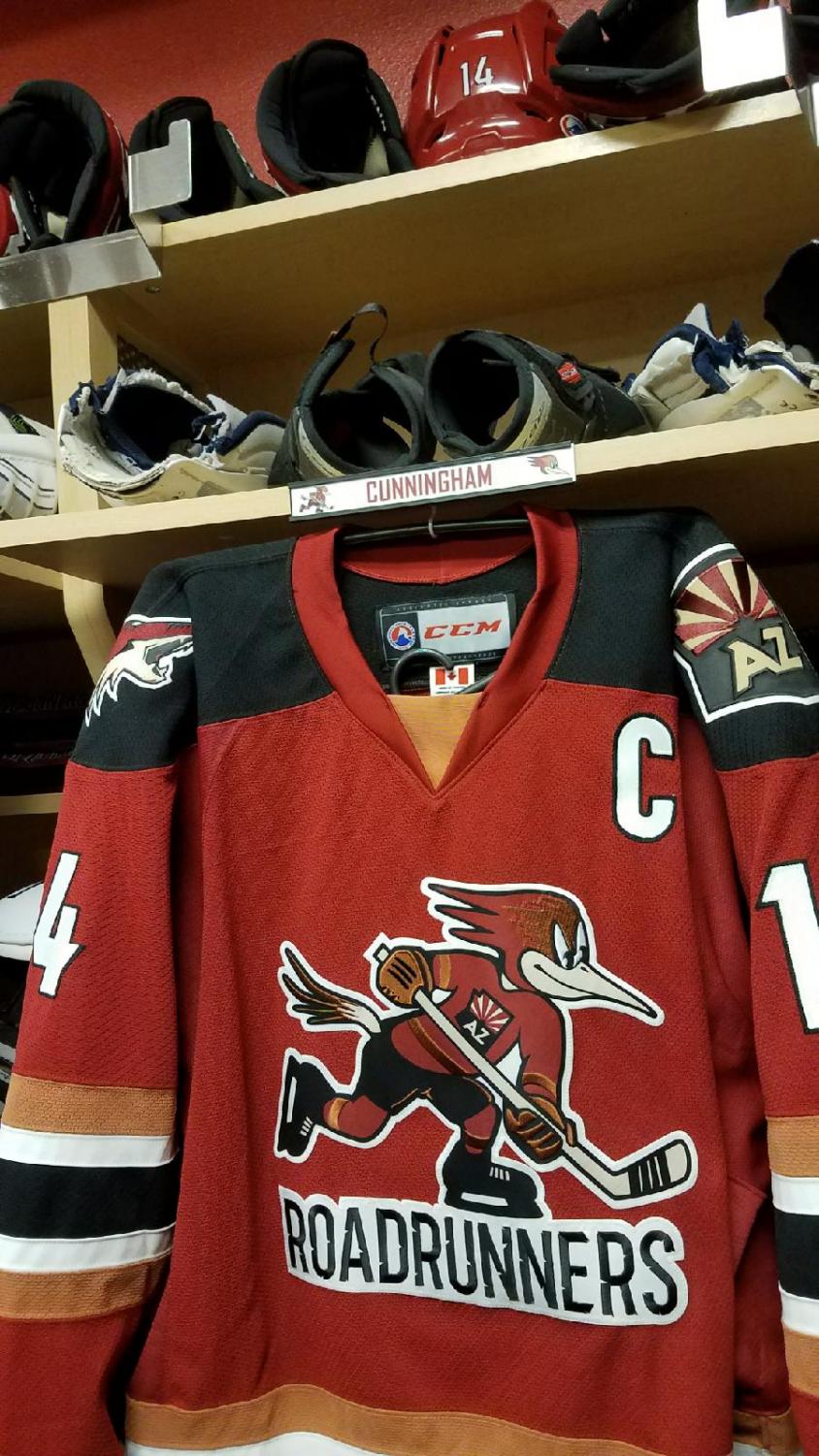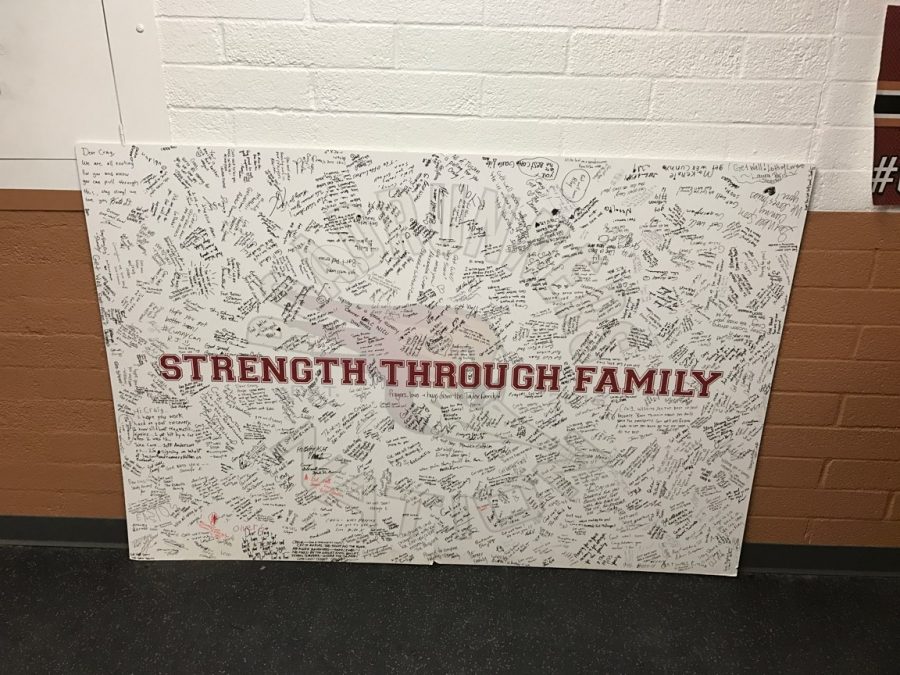Cunningham jersey retired but new chapter ahead for 27 year-old
A poster board signed by family and friends of Cunningham.
October 31, 2017
Friday, Oct. 27 was a very emotional night for the Tucson Roadrunners and their fanbase as well as many Arizona Coyotes fans.
They honored the first captain in Tucson Roadrunners team history, Craig Cunningham, by retiring his number to the rafters. This event may seem odd since last season was the inaugural year for the Tucson Roadrunners, and Cunningham is only 27 years old.
On Nov. 19, 2016, everything changed for Cunningham and the Roadrunners hockey family.
It was almost puck drop and the Roadrunners were about to face off with the Manitoba Moose, the Winnipeg Jet’s AHL team, and Cunningham collapsed.
He was a victim of Sudden Cardiac Arrest, but he was in one of the best places for this to happen. The Fire Brigade was still on the ice, after performing the national anthem and they were able to immediately begin CPR on Cunningham, which would last for 85 minutes to keep him alive.
You can read more about his amazing recovery story here at Tucson.com.
Cunningham lost the bottom part of his left leg due to an infection that may have killed him, due to his heart still recovering after the CPR session.
In an ESPN feature article called Life or Limb, the recovery is chronicled and all that had happened in the first weeks and at the start of his recuperation.

Cunningham’s jersey that hung in the Roadrunners lockerroom during the 2016-17 season.
Over the past months, Cunningham has been rehabbing to stay in good shape, working with physical therapists and finally taking his first skate with his prosthetic leg in March.
He was also honored by the Arizona Coyotes, Apr. 9 on the last game of the season, to much ovation, fanfare and some tears.
Yet, at a small scrum on Friday night, Oct. 27, media could tell that he was ready to move onto the next phase of his life, almost a year after the traumatic event.
“It’s probably the longest year of my life. The one year anniversary is a month away. It’s crazy how much can change in a whole year, my whole life is so much different than it used to be this time last year. I was right in the locker room getting ready to go out on the ice. And you know, here I am now,” Cunningham said, while sitting in front of a small crowd of media.
Cunningham reflected once again, when asked about the banner, with his number being raised to the rafters.
“A lot of things have been put into perspective for me outside of the game of hockey and just the game of life. How much power you can have as a human being and what you can do. I think it’s kind of bittersweet, that at 26, I guess I’m 27 now, that my jersey is going up.”
Lost sometimes in Cunningham’s story, is that a young healthy hockey player collapsed to the ice due to a heart issue.
This isn’t the first time either, Jiri Fischer collapsed during a game in 2005, ending his career.
In more recent memory is Rich Peverley of the Dallas Stars, who collapsed during a game on Mar. 11, 2014.
Two young prospects have also died from Sudden Cardiac Arrest, most notably Alexi Cherapanov, at the age of 19, collapsed during a game in the KHL. He was a young, promising prospect of the New York Rangers.
Recently, in the TSN film short, All Heart, the doctor who saved Cunningham’s life has presented a plan to possibly save lives of NHL players by simply changing how they look at the heart during physicals.
For the longest time, #CunnyCan was the motto of Roadrunner and Coyotes fans, then it was #CunnyDid.
Cunningham is ready to move on as a pro-scout for the Arizona Coyotes. His job will include being able to watch talented players and ones that he would want to be on the ice with and then report back to the general manager.



Nancy • Oct 31, 2017 at 8:46 pm
It is noteworthy for the news to know that the doctor who saved Craig’s life was dr Reza Movahed in st. Mary’s Hospital. It is unfortunate that the news only acknowledges the doctor who arrived about 3 hours after Craig was saved. It is very unethical to not mention dr Movahed’s act as Craig would have definitely not survived without his action